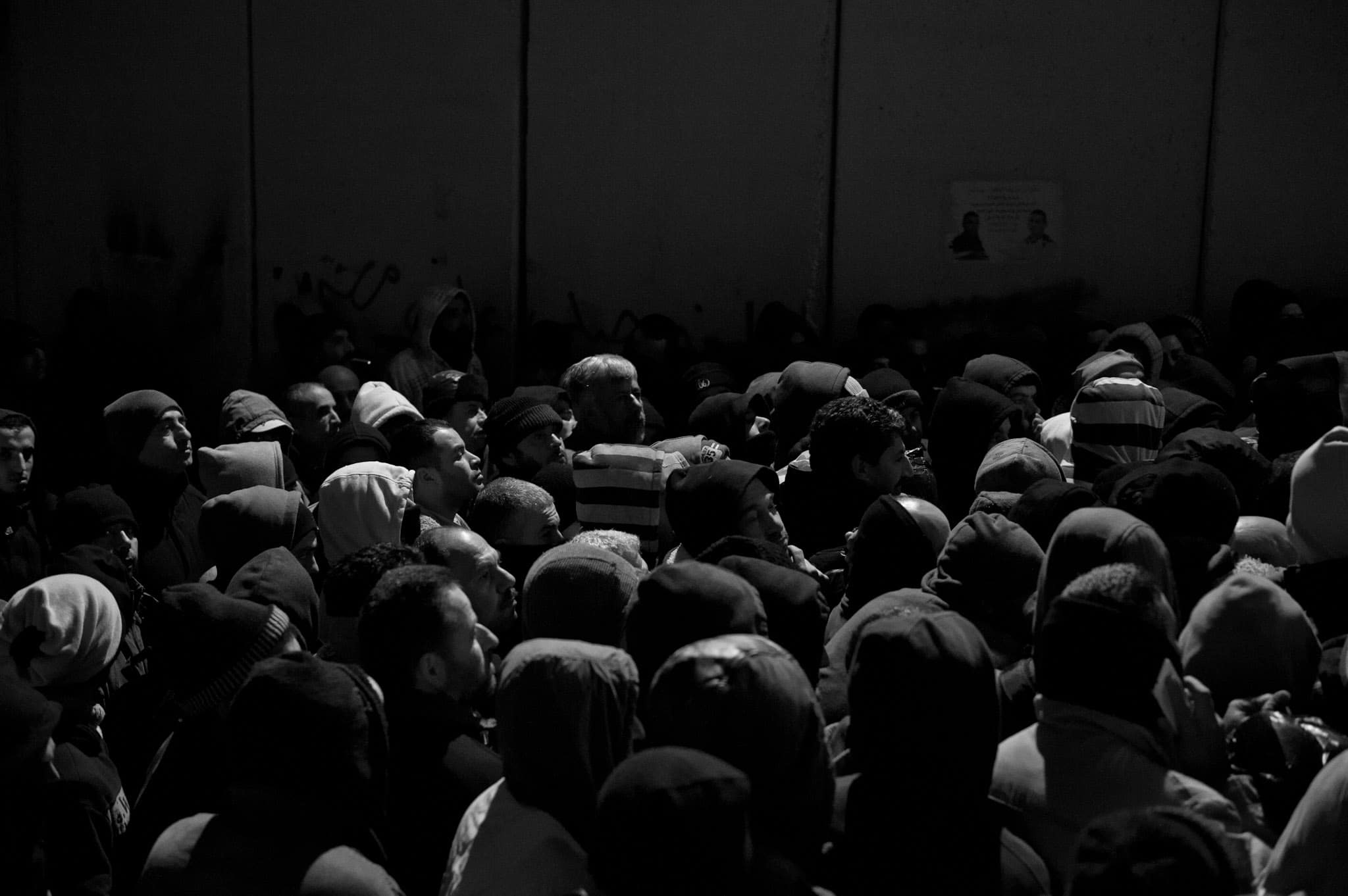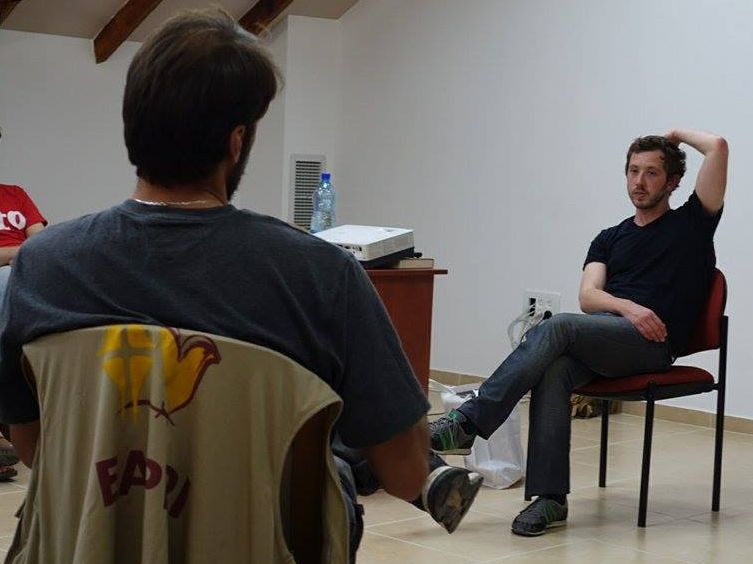*David, Haifa
We are in Haifa talking about EAPPI at a synagogue and have reached the question and answer session. Like all 16 year olds in Israel, *David is about to make decisions which will affect what he does during his three years of conscription into the Israeli military. He goes to one of the top schools in Israel and admits that most young people his age are just thinking about where to serve and not whether to serve.
The following week, we’re back in Bethlehem at checkpoint 300, the major checkpoint to Jerusalem, and a crowd is gathering in the lane which is reserved for women, children, the elderly, and disabled. At 5am on a Sunday morning the main queue for the checkpoint is crushed with workers trying not to be late. With around 1,500 crossing every half hour the conditions are challenging even for the young and fit. But today in the lane for those who can’t queue the Israeli soldiers are only letting through women. We ask the soldiers why, and they tell us that we shouldn’t complain as the lane is usually completely closed. ‘We are the nice soldiers, because we are letting through women even though we have been ordered not to.’ A man with a pacemaker stands there for an hour until the queue lessons in the main line and he feels able to join it.
Palestinian workers queue at Checkpoint 300 in Bethlehem
When Nadav was conscripted to the Israeli military he also wanted to be a soldier who made a difference. He grew up in a liberal household, attended demonstrations and had always been against the Israeli occupation of Palestine. But he soon realised that giving sweets to the children before arresting their father or trying to put everything back neatly when searching a house top to bottom at 4am did not make him one of the good guys.
Nadav from Breaking the Silence talking with an EA
His first night raid was a turning point. His commander told him to pack his camera and photograph each family member. They collected the names, ID numbers and occupations of each family member. They drew a diagram of the house. They searched everywhere, even slitting the inside of the sofa and making holes in hollow walls. When Nadav took this material to his commander the next day, he was surprised to find the commander didn’t want it. He came to realise that this wasn’t about collecting intelligence for security reasons but ensuring the military made their presence felt so that the family felt afraid and the neighbours worry that they would be next. Now working for Breaking the Silence, an organisation of former Israeli soldiers revealing the reality of the occupation, Nadav has documented the testimonies of over 2,000 soldiers who all describe a similar military doctrine in operation. As EAs, we’ve been to Palestinian villages where houses are raided most nights and seen the impact it has.
Asked what advice he would give to David about enlisting, Nadav is clear that the problem is the system, not the soldiers, the checkpoint and not how soldiers operate it. As long as the Israeli government keeps sending the army on what he believes is a political mission, he says that this is what will happen. As well as the Palestinians living under this oppressive system, Nadav points out;
After nearly 50 years the occupation continues to harm Palestinians and Israelis and needs more than a few ‘nice soldiers’ to stop the damage. Both Palestinians and Israelis are asking for our help to end the occupation: they want us to be among the people who make a difference.
*names have been changed



